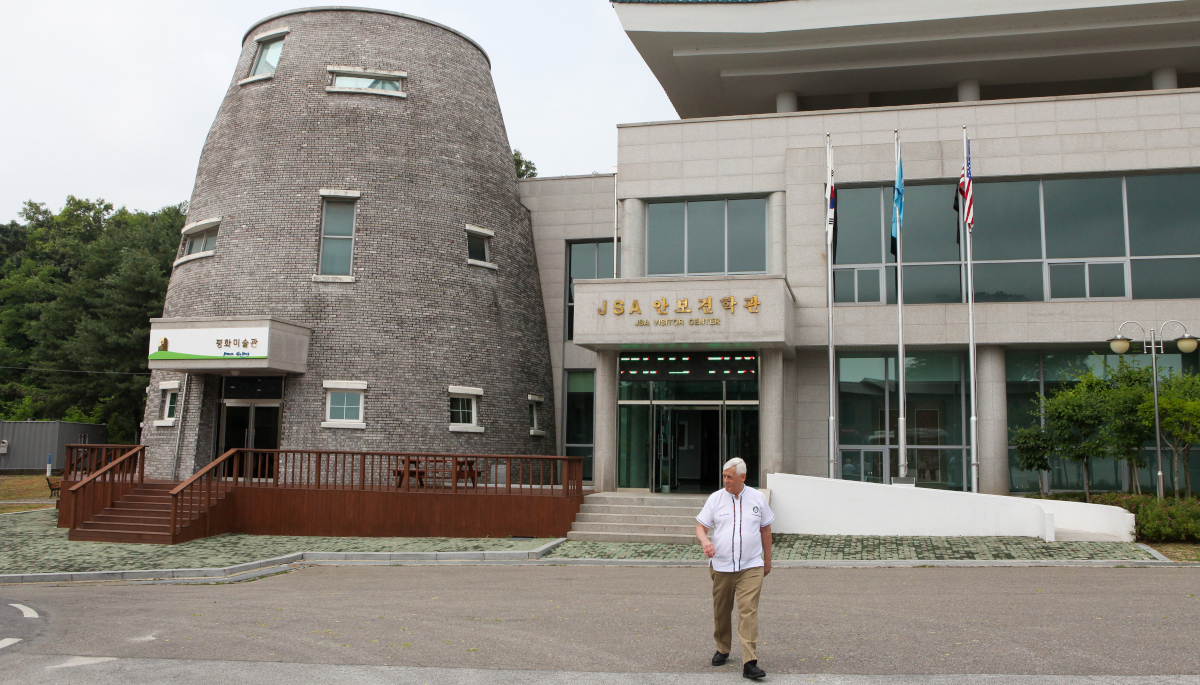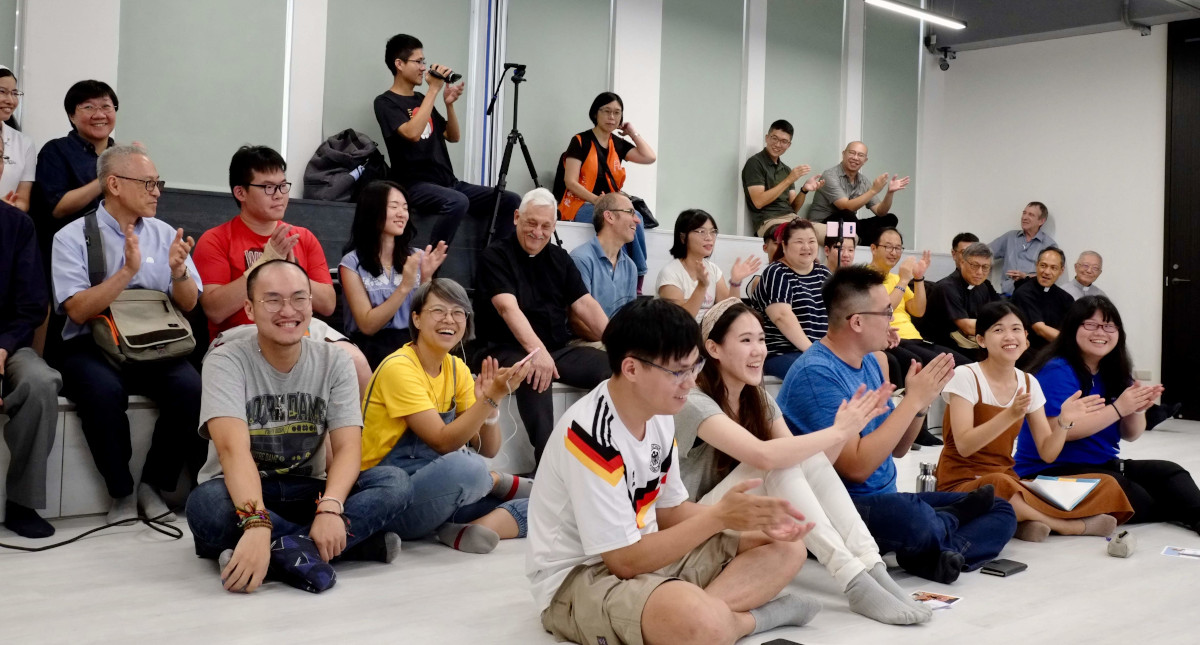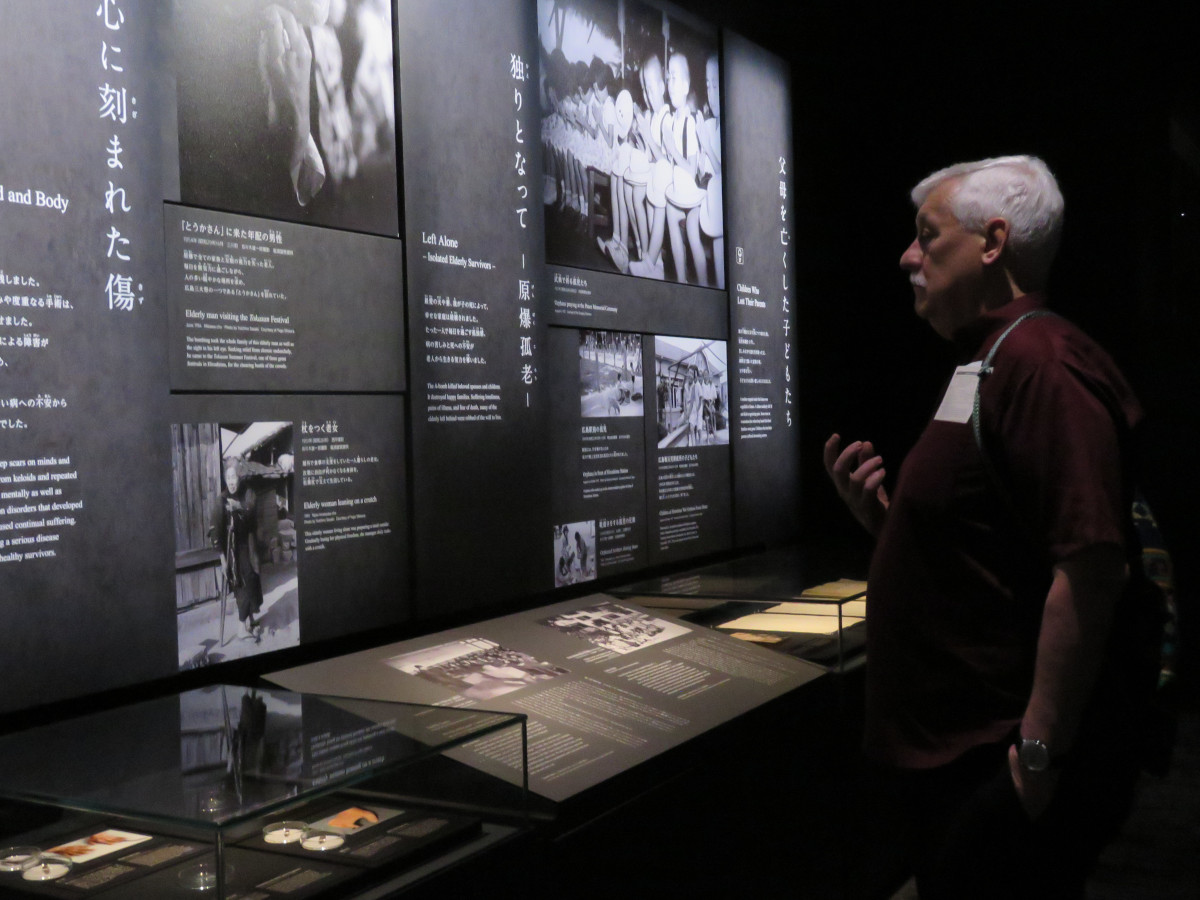“The past,” Faulkner warned “is never dead”, nor is it really past. Until we break down the barrier of division and fear that goes back many generations, no new bridges of hope can be built. Ever since General Congregations 35 and 36, the Society of Jesus has made reconciliation a key message. It is the theme that brought Fr General Arturo Sosa to Asia in the summer of 2019.
The Jesuit Superior General made the long journey to Korea, Macau, Hong Kong, Taiwan and Japan as part of his second official visit to the Jesuit Conference of Asia Pacific. In these places, reconciliation resonates within the broader historical, political and religious contexts. The 200-year history of the Catholic Church in Korea, which was the first country Fr General visited on this trip, is not without bloodshed. When Fr Sosa visited the Korean Catholic Martyrs’ Museum, a place known as Jeoldusan or “beheading mountain”, he saw the site where thousands of believers perished during the persecutions of 1866, as well as the many items on display from that sad period in history. In the museum’s church where the remains of 28 saints are entombed, Fr General spent a moment of prayer.
Korea is a country divided into two nations, a consequence of the Cold War. The Korean Demilitarised Zone in Panmunjom stands as a symbol of conflict and separation between North and South Korea. During his visit, Fr General saw the ways that the Korean Jesuits have been supporting the mission of peace and reconciliation on the Korean peninsula, discerning the drivers of reconciliation and peace towards the reunification of the two nations. In a press briefing when Fr Sosa was asked about the denuclearisation of the Korean peninsula, the Superior General was clear that reconciliation is not achieved by a passive attitude but through positive action. He responded that disarmament is needed to solve the problems that result from poverty, violence and arms. Jesus on the cross, he said, symbolises the attitude that Christians should have: to want to give their life for others and the world.
Throughout his trip, Fr Sosa did not shy away from confronting issues of violence and conflict. While in Hong Kong, where political and social tensions were (and still are) high, he addressed the school community of Wah Yan College Kowloon and Hong Kong about an important dimension of the identity of Jesuit schools as places for reflection, dialogue and reconciliation. “Our schools can be neutral spaces for dialogue, for open and fraternal listening, for respectful acceptance and even for eventual reconciliation at some point in the future,” he said to a mixed crowd of parents, teachers and students.
Old and young generations have a way of viewing things from different perspectives. This is no truer than when applied to the current situation in Hong Kong. As young people express their desire for greater democracy, their parents or grandparents see the transition from British territory to China as a historic gain. The tension between human formation and what young people want to achieve – whether in the classroom focussed on their studies or out on the streets fighting for a just society – is very important. “A Christian orientation includes social and political responsibility,” Fr Sosa said. “The question is how to discern what it means to get involved.” For the Superior General, Jesuit schools can do a great service to society by offering a space for reflection and discernment where there is openness to talk “without prejudice, without judgment, without taking only one position”. Even to say, “We made a mistake”.
The real meaning of good political participation, said Fr General, is possessing a sense of citizenship that thinks of the common good. This consciousness of the common good was the message he gave to young people everywhere he went. At Colegio Mateus Ricci in Macau where he graced the graduation ceremonies of primary and secondary students, he told them: “You are still so young, but you carry in you the future of this world… I invite you to think about how you can help others in new ways that you have not yet tried before.” He prayed for the children to have “the strength to be daring and hopeful, not for yourselves, but for the world, and for the future”. Likewise, in his meeting with the Magis youth in the Tien Educational Center in Taiwan, Fr Sosa encouraged them not to be afraid to face the world, even to change it, to keep walking ahead because God would always be there as a beacon to guide them.
Young people, really everyone, have Fr Pedro Arrupe, now Servant of God, to turn to for inspiration. In Japan, where Fr General concluded his Asian sojourn, Fr Arrupe came face-to-face with human suffering. Nearly half a million people died from the atomic bombs that were dropped by the United States on Hiroshima and Nagasaki during the Second World War. The Jesuit novitiate in Hiroshima became a makeshift hospital crowded with so many of the injured. Years later, Fr Arrupe would credit the true source of his apostolic energy to the Heart of Jesus, crucified and risen, waiting for humanity to take part in the work of rebuilding.
Japan’s dramatic history, however, dilates far beyond the atrocities of the atomic bombings. Centuries before Fr Arrupe landed in Japan, a small community of beleaguered Catholic converts in Nagasaki went deep underground and practised their faith in secret during centuries of oppression. Descendants of the so-called “Hidden Christians” resurfaced in the 19th century with their faith intact. They built their long-dreamed-of cathedral in 1914, to be destroyed by the atomic bomb in 1945. So far, peace is still an issue that looms large in Japan. Many bomb survivors, including “Hidden Christian” descendants, advocate for a ban on nuclear weapons, but Japan has up to this time refused to sign the UN nuclear-ban treaty.
Seventy years or so have passed since the atomic bombs were dropped on Hiroshima and Nagasaki, the ceasefire armistice on the Korean peninsula was signed and Faulkner wrote those famous lines. There is still a great distance to peace and reconciliation, but just as the risen Christ accompanied the two disciples on the road to Emmaus, Fr General Arturo Sosa assures us, “The Lord is on the path with us”. In Asia, his message finds people – old and young – ready to listen and to believe.









